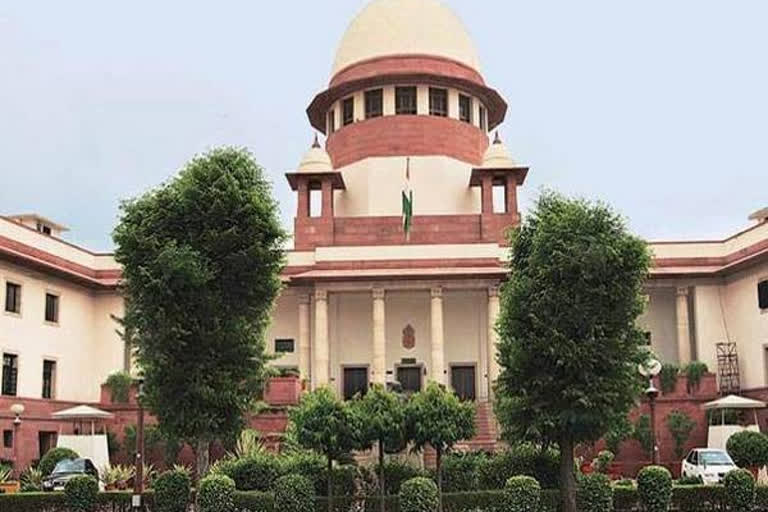New Delhi: The Supreme Court on Wednesday said that occupying public places like Shaheen Bagh for protests is not acceptable and such a space cannot be occupied "indefinitely". It observed that the concerned authorities must see to it that public spaces are free from obstructions and do not wait for the court's order to do so.
The bench comprising of Justice Sanjay Kishan Kaul, Justice Krishna Murari and Justice Hrishikesh Roy pronounced their verdict on a batch of plea which sought removal of protestors from the Shaheen Bagh site who were agitating against the Citizenship Amendment Act, 2019
The apex court said that protests should be organised at designated places and it is the duty of the authorities to remove the demonstrations if they are not in a designated place. The court observed that the right to protest is a constitutional right and must be respected but that does not mean that the agitators must adopt methods of colonial-era which was used during independence. The court observed that the right to protest and mobility must be balanced.
The top court's verdict came on a plea against the anti-CAA protests which had led to blocking of a road in Shaheen Bagh in the national capital last December. A bench headed by Justice S K Kaul held that public places cannot be occupied indefinitely like during the Shaheen Bagh protests.
READ: Punjab farmers reject Centre's invite to discuss farms laws
The bench also said that Delhi Police ought to have taken action to clear Shaheen Bagh area from the protesters.
"Democracy and dissent go hand in hand," it said, adding that the authorities have to act on their own and cannot hide behind courts in dealing with such a situation.
Earlier when the plea was heard, the court had asked Advocates Sanjay Hedge and Sadhna Ramchandran and bureaucrat Wajahat Habibullah to mediate with the protestors. It did not lead to vacating the site but after the outbreak of COVID-19 the site was vacated by people.
The verdict came on a plea of lawyer Amit Sahni against the blockade of a road in Shaheen Bagh area by those protesting against the Citizenship Amendment Act.
Shaheen Bagh became an epi-centre of anti-CAA protests as women with young children staged a sit-in there for over three months. The protest at Shaheen Bagh ended in March this year in view of the COVID-19 outbreak and a subsequent lockdown announced by the government to contain the spread of the disease.



